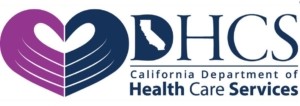Compassionate Treatment for Prescription Drug Addiction
According to a 2016 National Study on Drug Use and Health, roughly one in 10 Americans are battling some type of substance use disorder. And more people report using controlled prescription drugs than cocaine, heroin, and methamphetamine combined. When it comes to substance use disorders, prescription drugs are second behind marijuana. Thankfully, a prescription drug addiction treatment program in California can offer a solution to long-term sobriety.
How Can Prescription Drug Addiction Treatment Help?
Addiction is a vicious cycle and it often co-occurs with mental health issues. Finding the right treatment center is important to address both addiction and any underlying mental health concerns. At the Dana Point Residential Mental Health Treatment facility, we take a comprehensive approach to treating prescription drug addiction. Our compassionate team of professionals will work with you to create an individualized treatment plan that addresses your specific needs and goals.
Here are some of the most common symptoms and signs of prescription drug misuse that individuals might be struggling with:
- Taking a higher dose of a prescription drug than what is initially prescribed
- Taking someone else’s prescription, even for a medically-diagnosed problem like extreme pain
- Illegally seeking out other illicit drugs like cocaine or heroin to achieve the same high at a lower cost
Frequently Asked Questions
Addiction can happen in the blink of an eye. Let’s say that you get into a car accident that severely injures your back. Because of your personal injury, you develop a lot of chronic pain and need to see a doctor. You may even start going to physical therapy. When the pain worsens, the doctor prescribes you painkillers and you get a bottle of 10 pills. The painkillers relieve the pain in your back and even create an elated feeling, which is usually referred to as a “high.” When the pain reappears, you take the next dosage sooner than recommended and a dangerous cycle begins. You start taking the medicine more frequently and it becomes less effective. This is why it’s referred to as a misuse of prescription drugs. Due to the medication losing efficacy, it takes higher dosages to achieve the same result of relief and elation. This is how prescription misuse can lead to addiction.
A residential treatment program in California involves therapy and counseling in order to start the journey towards recovery. Detoxification is one of the elements of the treatment program but this alone isn’t enough to guarantee long-term recovery. It’s important to address the root causes of addiction to change the relationship of substance use. That’s why our comprehensive residential mental health treatment offers a personalized treatment plan.
Our residential treatment facilities use evidence-based behavioral treatments in conjunction with other tried-and-true methods like 12-step recovery. We want to make sure that every person who seeks assistance leaves the facility with the tools to pursue a better quality of life. Overall, we make sure that clients are psychologically, physically, and emotionally ready for life outside of the program. It’s not just about getting sober but also learning how to maintain a healthy lifestyle.
3d tour
Get Premium Treatment and Comfortable Accommodations
Our residential mental health treatment center in California can help individuals who are struggling with mental health disorders and substance misuse. The treatment specialists at our facility are knowledgeable about the recovery process. Individuals can get comfortable accommodations in spacious rooms with gorgeous views. There are carefully chosen meals and preparation, as well as access to a fitness center, a beach, and many more.
Some additional text
Types of Prescription Drug Misuse
There are several types of prescription medications. Prescription drug misuse can be broken down into three common categories.
Opioids
Opioids are painkillers that are primarily prescribed for chronic pain. One in four teens report that they have misused a prescription drug like opioids at least once. Opioids are also referred to as narcotics and usually include morphine, oxycodone like OxyContin and Percocet, codeine, meperidine, and hydrocodone like Vicodin and Lortab. Taking large single doses can cause severe symptoms such as respiratory issues or even death. Long-term misuse of opioids can lead to drug dependence.
Stimulants
Prescription stimulants are drugs that are usually prescribed for narcolepsy or attention-deficit hyperactivity disorder (ADHD). These types of medications are used to stimulate the brain to increase energy and alertness. The most common stimulants involve methylphenidates like Ritalin and Concerta or amphetamine such as Adderall. These medications increase brain activity and affect a variety of functions like blood pressure, heart rate, and breathing. People who use stimulants usually describe a feeling of euphoria after taking the stimulant. Nearly 5 million people over the age of 12 misuse this type of drug.
Anti-Anxiety Medications and Sedatives
Anti-anxiety medications and sedatives—usually referred to as depressants—are typically used to treat sleep disorders or anxiety. The most common drugs will include alprazolam like Xanax, diazepam like Valium, and zolpidem like Ambien. These medications will slow down brain activity and reduce stimulation. They affect the central nervous system in order to relieve anxiety, seizures, and muscle spasms.






